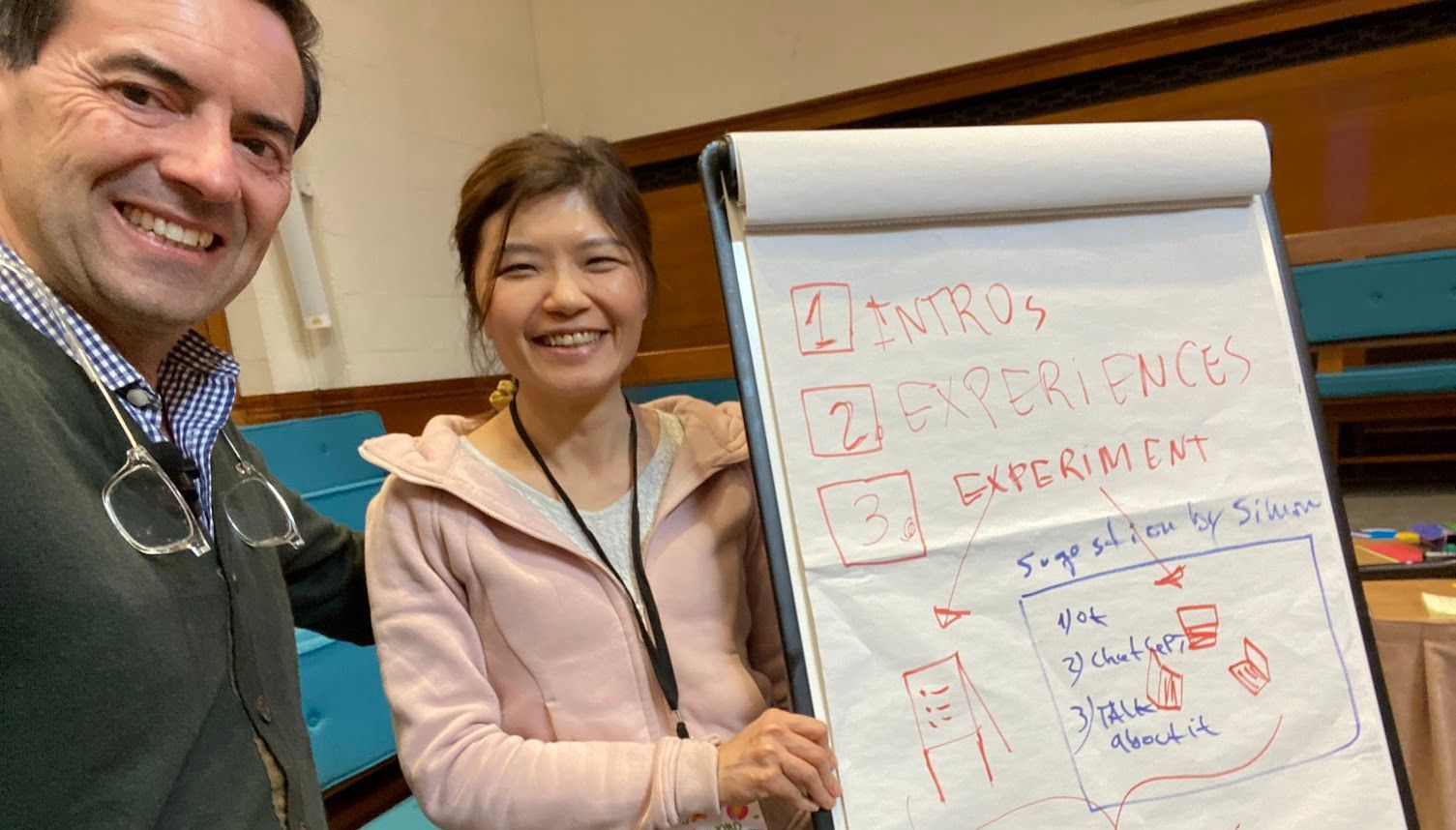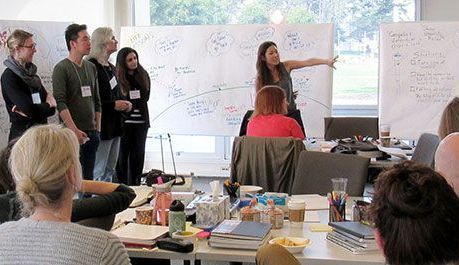Opening the Pandora box
Agile and lean methods are transforming the management culture worldwide
When I decided to change the home page of my website and to include this picture upfront, I thought to myself - why are you doing this?
I do not subscribe to the intellectual discipline of starting with the question 'why', before doing anything. That would be preventing me from enjoying life as it happens, moment by moment. But I am adamant about asking 'why are we doing this?' whenever it concerns my professional practice. Otherwise, the value I generate to my employers or customers would be mechanical and easily replaceable by the value of employing a clever robot.
I am not sure that organizations in the XXI need that much robots, no matter how clever they can become. Instead, organizations are in desperate need of better day-to-day decision-making, to avoid costly mistakes that constantly happen out of miscommunication, work attitude, or simply lack of preparedness.
If you think your organization would perform better if you had a bunch of robots rather than human workers, then this article is not for you. Please stop reading.
If you agree that the challenges of managing human beings are worthwhile the pains, no matter how stubborn they can be, then you would be surprised by knowing more about the power of teams and how they can ease such daily management pains to the levels of comfort and pleasure.
If you are working in an organization that deals with IT, chances are that your company may already be experiencing the benefits of agile methods and teamwork. The agile revolution is already making a deep impact on the productivity of many organizations as this brilliant article from Simon Conington
points out:
"Three hundred years ago, there were no offices and no factories. People lived and worked at or near home, and work was judged on what you produced, not how many hours you spent working. The first office was opened in 1729 by the East India Company, and the first factory was opened in 1769. During the Industrial Revolution, this system quickly became the way most people worked. However, technology means that, for many jobs, it is no longer necessary for everyone to work in the same location, which is causing people to question whether it is the most productive way to manage our working lives. We’re calling this era the Agile Revolution. Of course, it creates many challenges."
In 2016, Forbes publishes an article by Steve Denning
, who convincingly argues:
“Agile’s emergence as a huge global movement extending beyond software is driven by the discovery that the only way for organizations to cope with today’s turbulent customer-driven marketplace is to become Agile. Agile enables organizations to master continuous change. It permits firms to flourish in a world that is increasingly volatile, uncertain, complex and ambiguous.”
Yet, you cannot open the pandora box of going agile and savouring the benefits of teamwork within daily operations and expect that would not have an impact on the management culture of the organization overall. Agile methods, like Scrum, are like a contagious and powerful antibody against old style, conventional management. The spillover effect will eventually be reaching the C-Suite.
In a recent article by Scrum Inc, Kim Antelo
poses an interesting question: Why would teams raise issues that leaders don’t think are really a problem? How can we improve this communication?
So why this picture was chosen? So why this coffee shop picture was chosen? Your organization will be no different from a lively space where spontaneous collaboration emerges if you design your management processes participatively. People will be not working; they will be enjoying life as they work. The values of group facilitation would be the driving force behind management and facilitative leadership will be effectively clearing any impediments to change.
About the author
Paul Nunesdea is the English pen name of Paulo Nunes de Abreu, Facilitator, Master of Ceremonies, Author, and Publisher of the book series - Architecting Collaboration, his LinkedIn profile can be reached here, or in Spanish here, or Portuguese here.
Paul is an IAF Certified Facilitator™ who designs and hosts events for clients ranging from large companies to municipalities and regional governments.
His academic background as a PhD researcher combined with +15 years of experience as a former CEO and entrepreneur has sharpened a client-serving mentality eager to co-create win-win solutions. As an NGO founder, he co-founded Digital Health Portugal and hosts the Health Regions Summit, the Health Data Forum among other initiatives.
As both a GroupMap™ and Howspace™ certified facilitator he co-founded the Digital Collaboration Academy with renowned facilitator Peter Seah united by the vision of creating and sustaining a new emerging field - Digital Facilitation - augmented by the core competencies of the IAF - International Association of Facilitators.
Follow Us
"Be brave enough to start conversations that matter and shift the direction of change for the better."
col.lab | collaboration laboratory is a spin-off from the book series " Architecting Collaboration " and our privacy policy can be consulted here
My Meeting Support is an event services brand by col.lab | collaboration laboratory

















